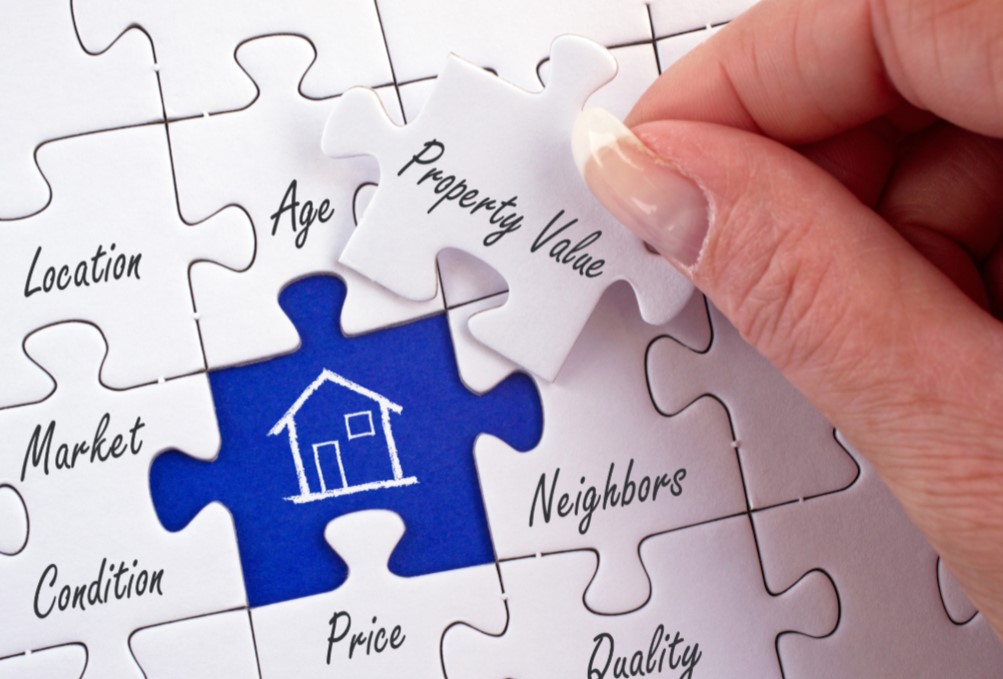
Property valuation is more than just determining the worth of a property—it’s about understanding the intricate variables that influence property value, from location and market trends to property taxes and the condition of the real property itself.
What’s crucial in preparing for property valuation questions in the NJ real estate exam? Mastering property valuation is essential. It involves understanding the economic value of a property, considering factors like location, market trends, and property laws. This knowledge is vital for success in the NJ real estate exam.
At Ocean School of Real Estate, we have been equipping students with the necessary knowledge and skills to excel in the real estate industry since 1979. We understand the importance of property valuation in real estate transactions and the pivotal role it plays in the NJ real estate license exam.
This comprehensive guide tackles key topics, common mistakes, and effective strategies, all designed to prepare you to answer property valuation questions confidently.
Understanding Property Valuation
Definition and Basic Concepts of Property Valuation
Property valuation, a fundamental real estate concept, is the process used to determine the economic value of a property. Whether you’re purchasing property or preparing a listing agreement, you have to understand the process includes factors such as the property’s physical attributes, its location, market conditions, and applicable property laws.
At Ocean School of Real Estate, we provide quality education to those interested in obtaining their New Jersey real estate license. Our real estate prelicensing program covers concepts of property valuation, equipping students with the knowledge they need to excel in the real estate industry.
The Role of Property Valuation in Real Estate Transactions
In real estate transactions, property valuation plays a pivotal role. It helps establish a fair and competitive price for a property, which is an integral part of a valid real estate contract. For licensed real estate brokers, understanding this process is even more critical. Brokers often navigate complex transactions, and a comprehensive understanding of property valuation is necessary for advising clients effectively and making informed decisions.
A solid grasp of property valuation is needed for those considering mortgage loan options. It can help potential homeowners evaluate whether a property is priced fairly and if the investment is worthwhile.
Property Valuation and the NJ Real Estate Exam
Property valuation’s relevance extends beyond everyday real estate transactions—it’s also a significant component of the NJ real estate exam. Aspiring real estate professionals must demonstrate a thorough understanding of property valuation to pass the exam and obtain their real estate broker’s license.
At Ocean School of Real Estate, we are committed to preparing our students for this challenge. We offer a varied schedule of in person and scheduled online classes to help our students master property valuation and other essential topics. Our goal is not just to help you pass the licensing exam but to provide you with the skills and knowledge you need to thrive as a real estate professional.
Common Mistakes in Property Valuation
Property valuation is a complex process, and it’s not uncommon for students preparing for the NJ real estate exam to stumble in this area. Below, we highlight some common mistakes and offer tips on how to avoid them.
Overlooking Market Conditions
One of the most common errors is overlooking market conditions or failing to understand their impact on property value. Real estate agents must stay updated with the current state of the market, as it significantly influences how much a property can sell for.
Tip: Regularly review local and national real estate trends. Understand how economic indicators like unemployment rates, interest rates, and consumer confidence influence the real estate market.
Ignoring Property Law
Another mistake is neglecting the role of property law in property valuation. Laws surrounding zoning, building codes, and environmental regulations can significantly impact a property’s value.
Tip: Invest time in understanding property laws applicable in your area. Licensed real estate brokers are expected to have a thorough understanding of these laws to provide accurate valuations.
Neglecting the Real Estate Guaranty Fund
The real estate guaranty fund, although not directly related to property valuation, is an important aspect of being a real estate professional in New Jersey. However, many students overlook its importance.
Tip: Familiarize yourself with the nuances of the real estate guaranty fund. Understanding its purpose and how it operates can add credibility to your practice and build trust with clients.

Relying Solely on Automated Valuation Models (AVMs)
Automated Valuation Models (AVMs) are tools that provide property value estimates based on mathematical modeling. While these can be helpful, relying solely on them can lead to inaccurate valuations as they may not account for all variables affecting a property’s value.
Tip: Use AVMs as a starting point, but remember to consider other factors such as the property’s condition, unique features, and recent sales of similar properties in the area.
Resources for Further Study at the Ocean School of Real Estate
At the Ocean School of Real Estate, we believe in providing a comprehensive learning experience. While our courses are designed to equip you with the necessary knowledge to become a licensed real estate broker and a New Jersey realtor, supplementing this with additional resources can deepen your understanding of key concepts such as property valuation. Here, we recommend various resources that can help you enhance your skills.
Textbooks
Textbooks provide theoretical knowledge and case studies that can greatly aid in understanding property valuation. The following volumes are not required reading for your real estate education course with us, however they do provide in depth knowledge and for those who are interested to learn more, recommended additional reading on the subject. These textbooks include:
- “Real Estate Market Analysis: Methods and Case Studies” by Deborah Brett
- “The Appraisal of Real Estate” by The Appraisal Institute
- “Property Valuation Principles” by David Isaac and John O’Leary
Online Courses
In addition to our pre-licensing online classes, there are many other online platforms that offer courses on property valuation. Websites like Coursera, Udemy, and LinkedIn Learning host these courses, which often include video lectures, quizzes, and assignments that reinforce learning.
Webinars
Webinars are an excellent way to learn about the latest trends in property valuation. They often feature industry experts who share their insights and experiences. Websites like Realtor.com and Zillow regularly host webinars on various real estate topics.
Study Groups With Peers at Ocean School of Real Estate
Take the opportunity to form study groups with your peers and other students to engage in an interactive and personalized learning experience. Free virtual meeting platforms provide opportunities for discussions, debates, and problem-solving exercises that can significantly enhance your understanding of property valuation.
Benefits of Study Groups and Tutoring Sessions:
- Peer Learning: Interacting with peers can expose you to different perspectives and approaches to property valuation.
- Personalized Attention: During study group sessions, you can get individualized feedback and discussion on any concepts you find challenging.
- Accountability: Regularly meeting with a study group can motivate you to stay consistent with your studies.
Remember, the journey to becoming a successful real estate broker requires continuous learning. By leveraging these resources and participating in our varied schedule of classes, including weeknight, evening, and Saturday courses, you can deepen your understanding of property valuation and excel in your career. Ocean School of Real Estate is committed to helping you attain your goal of passing the real estate licensing exam and becoming a well-rounded real estate professional.
Learning Property Valuation With Ocean School Of Real Estate
The Ocean School of Real Estate is dedicated to fostering a comprehensive learning environment that goes beyond just preparing you for the NJ real estate exam. Our emphasis on mastering property valuation, understanding market dynamics, being well-versed in property law, and recognizing the importance of the real estate guaranty fund highlights our commitment to nurturing well-rounded real estate professionals.
The additional resources we recommend, including textbooks, online courses, webinars, and our very own study groups and tutoring sessions, are aimed at reinforcing your learning and enhancing your understanding of property valuation. We are here to support your journey to become a successful real estate broker. Your success is our accomplishment. Keep learning, keep growing.



